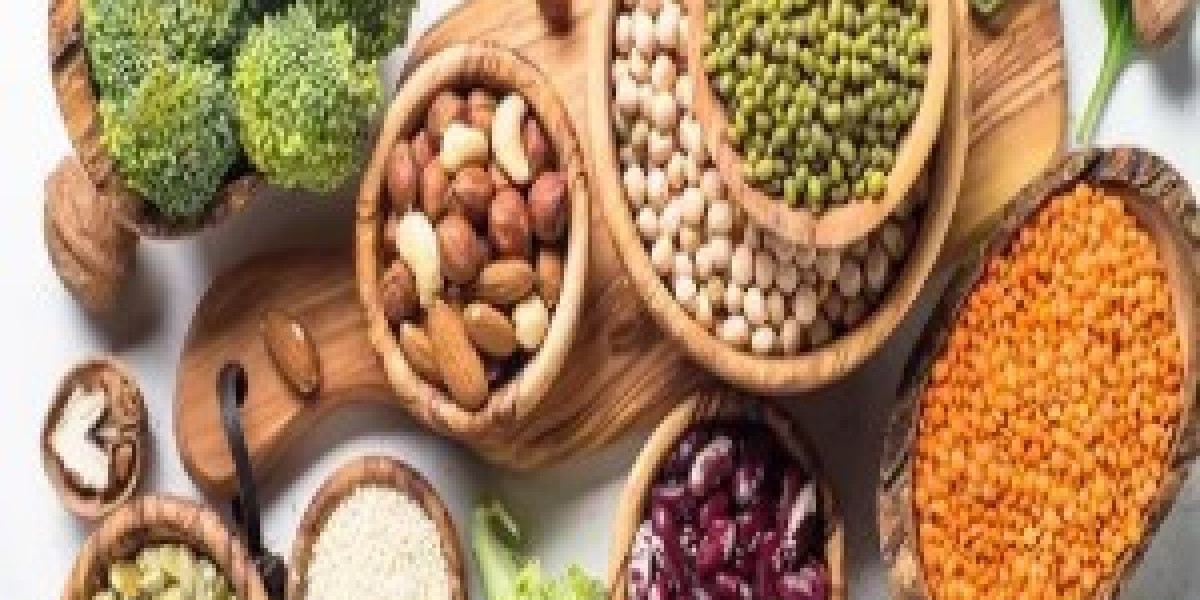What are Alternative Proteins?
Alternative proteins are food sources of protein that are not from traditional meat sources such as beef, pork or chicken. They are made from plant-based ingredients or produced directly from non-animal cells through fermentation. Some examples of alternative proteins include plant-based meat substitutes, mycoprotein, single-cell proteins, and insect-based foods.
Plant-Based Meat Substitutes
Plant-based meat substitutes are foods designed to mimic the texture, flavor and appearance of conventional meats like beef burgers or chicken nuggets but made entirely from plant ingredients like soy, pea protein or gluten. Popular brands include Beyond Meat, Impossible Foods and Gardein which produce burgers, sausages and grounds that look, cook and taste very similar to animal meat but contain no animal products. These products are generally considered a sustainable and healthier alternative to meat.
Alternative Protein in plant-based meat market has grown rapidly in recent years as more consumers switch to flexitarian or vegetarian diets. According to GlobalData, global sales of plant-based meat substitutes increased by 18% in 2020 and are expected to rise from $1.4 billion in 2018 to over $3 billion by 2023 as distribution increases in grocery stores and fast food chains add plant-based meat options to menus. Improved formulations that closely mimic the flavor and texture of meat have likely contributed to this growth by appealing to both strict vegetarians and meat-eaters interested in occasional meatless options.
Mycoprotein
Mycoprotein, also known as quark or mycotal protein, is a protein-rich food made by fermenting Fusarium venenatum, a fungal mycelium. It has a chewy texture and neutral flavor that absorbs surrounding flavors well. Its protein content and amino acid profile is comparable to meat and eggs. Quorn, the leading mycoprotein brand, produces meat analogues like fillets, nuggets and grounds from mycoprotein.
Quorn products provide a complete protein supplement for vegetarians and can be an alternative for people seeking to reduce meat consumption. They contain traces of gluten however so are not suitable for those with gluten sensitivity. Research studies have found mycoprotein products do not increase cholesterol levels and support healthy cardiovascular function making them a nutritious, low calorie alternative to red meat. While more established in Europe and the UK, mycoprotein products are also growing in availability in North American grocery stores and restaurants.
Single-cell Proteins
Single-cell proteins (SCPs) are produced by fermenting microorganisms like algae, fungi or bacteria which are then harvested and processed into dietary protein sources. Some common microbial sources of SCPs include yeast, spirulina and chlorella. SCPs have 2-3 times more protein than soybeans and 15-20 times more than grains. They are generally considered a sustainable resource that can help meet future population protein demands.
Traditionally, SCPs saw limited commercial production mainly as animal or fish feed supplements. However research is investigating their potential as direct human foods. Spirulina in particular is already commonly marketed as a nutritional supplement due its high protein, vitamin and mineral content. As production techniques advance, single-cell microorganisms could provide an affordable, scalable protein source especially for developing nations dealing with malnutrition. Addressing concerns over flavor would likely boost acceptance as a mainstream food however.
Insect-based Foods
Insects have gained attention as a sustainable protein source due to their high nutritional value, low resource needs compared to livestock, and prevalence as a food source for humans in many cultures worldwide. Edible insect species commonly farmed for food include crickets, grasshoppers, mealworms, beetle larvae and ants.
Research shows insects are rich in essential nutrients such as protein, vitamins, minerals and healthy fats. For example 100g of mealworms contains 20-25g of protein and high levels of iron, zinc and calcium. They have low saturated fat and are more easily digestible than meat. Globally over 2 billion people regularly consume insects as part of their diet.
Commercial production of insect foods focuses on pre-processed foods like flour, protein powder and snacks as well as whole insects. Global insect farming has increased rapidly in recent years in response to growing demand. Factors like taste and texture acceptance will be key to their mainstream adoption, but insect-based foods show promise as a nutritious and environmentally-friendly animal protein substitute. Some predict they could form a $8 billion industry by 2030.
Get This Report in Japanese Language: 代替プロテイン
Get This Report in Korean Language: 대체 단백질
About Author:
Vaagisha brings over three years of expertise as a content editor in the market research domain. Originally a creative writer, she discovered her passion for editing, combining her flair for writing with a meticulous eye for detail. Her ability to craft and refine compelling content makes her an invaluable asset in delivering polished and engaging write-ups.
(LinkedIn: https://www.linkedin.com/in/vaagisha-singh-8080b91)










